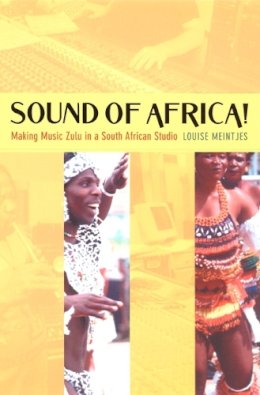
Sound of Africa!: Making Music Zulu in a South African Studio
Louise Meintjes
Focusing on the ways artists, producers, and sound engineers collaborate in the studio control room, Meintjes reveals not only how particular mbaqanga sounds are shaped technically, but also how egos and artistic sensibilities and race and ethnicity influence the mix. She analyzes how the turbulent identity politics surrounding Zulu ethnic nationalism impacted mbaqanga artists' decisions in and out of the studio. Conversely, she explores how the global consumption of Afropop and African images fed back into mbaqanga during the recording process. Meintjes is especially attentive to the ways the emotive qualities of timbre (sound quality or tone color) forge complex connections between aesthetic practices and political ideology. Vivid photos by the internationally renowned photographer TJ Lemon further dramatize Meintjes’ ethnography.
Product Details
About Louise Meintjes
Reviews for Sound of Africa!: Making Music Zulu in a South African Studio
Library Journal
“Meintjes’ book offers perceptive descriptions. . . . An unflinching account of how the media became entangled with the country’s ethnic violence during the 1990s.”
Aaron Cohen
DownBeat
"A major and uniquely different contribution to the body of scholarship on South African popular music. . . . A valuable contribution to the literature exploring the intersection between identity, technology, and aesthetics in various black musics. . . ."
Michael E. Veal
Ethnomusicology
"A strikingly novel and compelling narrative. . . . informative, empirically sound, and engaging."
Veit Erlmann
American Ethnologist
"A wonderfully rich and highly contextualized study of one point in the constellation of processes that are coming together to define what it can mean to be South African today: a music studio in Johannesburg. . . . Louise Meintjes offers a compelling portrait-soundscape?-of how recording and producing music is intimately connected to the production of Zulu-ness and African-ness, both within South Africa and within the increasingly vibrant circuits of world music marketing and recording. It should serve as a model for further research on the intersections of music making, technology, and the mediation of identity."
Jonathan H. Shannon
American Anthropologist
